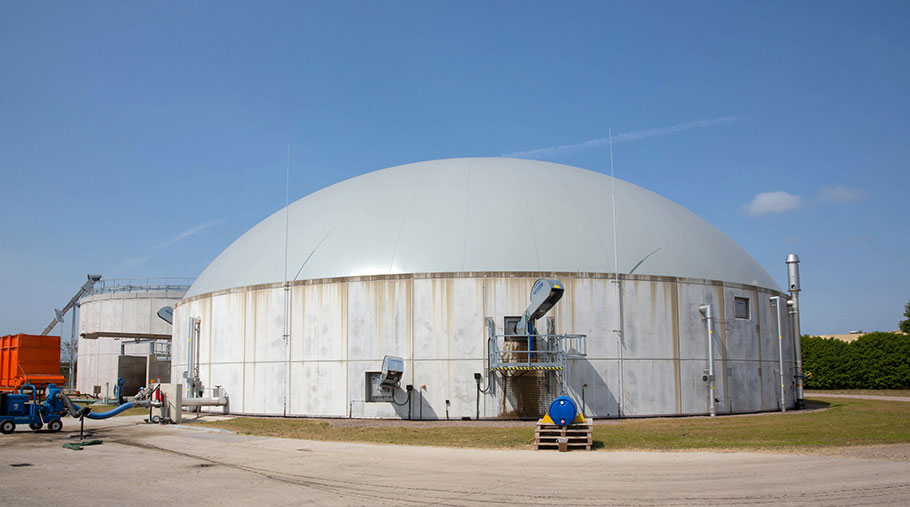Farm energy sector hits back at ‘vegan’ electricity tariff
 © Tim Scrivener
© Tim Scrivener A major green energy supplier has launched a “vegan electricity” tariff – promising to avoid sourcing power from anaerobic digesters fuelled by farm animal waste.
Ecotricity said people were “unknowingly powering their lives with electricity and gas made using the by-products of the meat and dairy industries, including animal body parts”.
The company said it was “highlighting this secret ingredient in the nation’s power supply and launching a vegan version – the world’s first Vegan electricity”.
See also: Tips on using anaerobic digestate as fertiliser
Representatives for the anaerobic digestion sector have hit back – arguing the technology is a vital method of disposing of agricultural waste.
But Ecotricity founder Dale Vince said: “Energy companies big, small, brown and green are using the by-products of factory farming to make electricity and gas.
“That’s not against the law, but it shouldn’t be a secret, any more than the ingredients in the food we buy should be secret – energy suppliers need to come clean.
Informed choice
“We need clear labelling of energy sourcing so people can make informed choices.”
Ecotricity claims the practice of using animal by-products and carcasses to make electricity and gas in Britain is widespread but typically disclosed only in regulatory materials.
The company said it had a longstanding policy of refusing to buy electricity or gas from animal related sources – and had now backed this up with Vegan Society registration.
The registration covers its electricity, with gas to follow.
Animal by-products
Mr Vince said many people were avoiding animals products in their diets but unwittingly supporting the meat industry with their energy bills.
He added: “It’s not just the Big Six guilty of this – many independents and those who call themselves ‘ethical’ or ‘green’ are doing it too, rather shamefully.”
Chantelle Adkins, head of business development at the Vegan Society, said: “As vegans, we strive to avoid all animal use; it’s disheartening when we’re not able to do so.
“We hope by highlighting the use of animal by-products to generate electricity we can help people realise just how widespread animal use is in our society and inspire them to avoid it.”
The Anaerobic Digestion & Bioresources Association (ADBA), which represents the sector, responded by saying it was critical that animal waste was recycled into energy.
Efficient process
ABDA chief executive Charlotte Morton said anaerobic digestion got by far the most out of animal waste compared with other waste-treatment technologies.
“We fully support the waste hierarchy and believe that as little waste as possible should be produced across all areas of society, including food waste and agriculture.
“In an ideal world, there would be no need for our industry.
“But where these wastes are produced – and they are, in huge quantities – it is critical they are recycled through anaerobic digestion.”
Anaerobic digestion generated into renewable energy and soil-restoring biofertiliser rather than leaving products wasted and untreated to release climate-change-inducing methane.
“In the same way as recyclers of other materials such as paper, metal, or glass, anaerobic digestion is offering a solution to a problem we all create,” said Ms Morton.
“Anaerobic digestion is there to make the best of agricultural and other organic wastes – such as sewage and food waste – where they do arise, not to cause them in the first place.
“This is a hugely important distinction.”
